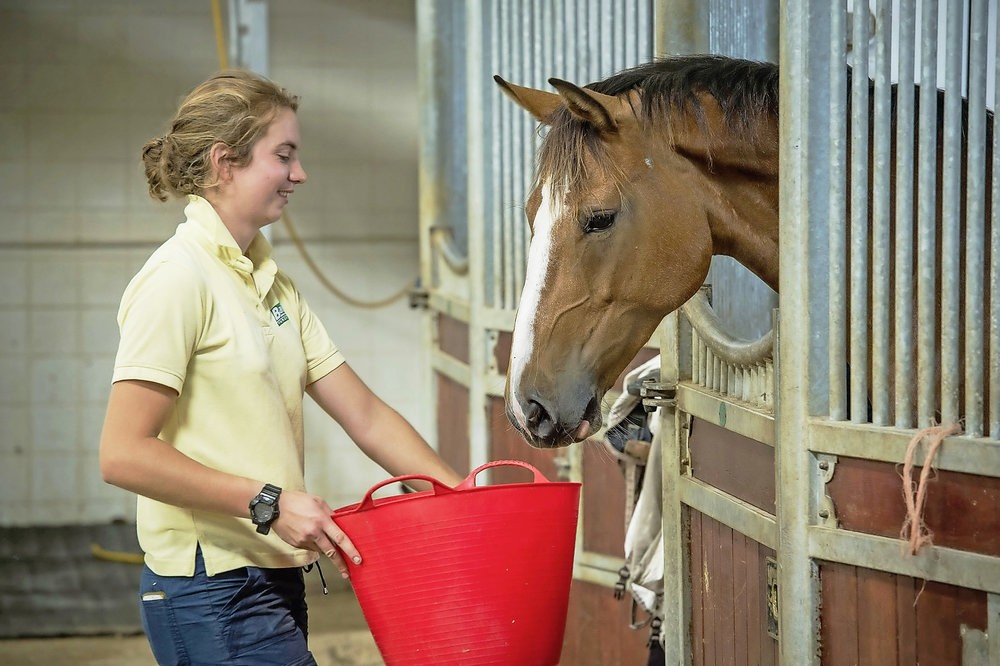Understanding the importance of a proper feeding schedule for performance horses cannot be overstated. Equine athletes have unique dietary needs that fuel their energy, optimize their health, and enhance their performance. This article delves deep into creating an optimal schedule to meet the nutritional demands of performance horses, ensuring they excel in their activities.
The right feeding regimen is crucial for maintaining a horse’s health and performance capacity. By examining which nutrients are necessary and how often they should be administered, we can ensure our horses receive balanced nutrition throughout the day.

The Role of Nutrition in Horse Performance
Nutrition plays a critical role in ensuring horses can perform at their best. A balanced diet not only maintains health but also supports muscle development, recovery, and energy levels. In-depth understanding of nutrition for performance horses is fundamental for trainers and caretakers.
To learn more about potential nutrient deficiencies in horses, visit this informative article.
Essential Nutrients for High-Performance Horses
Performance horses require specific nutrients in precise amounts:
- Carbohydrates for immediate energy
- Proteins to aid in muscle and tissue repair
- Essential fats for sustained energy and metabolic functions
- Vital vitamins and minerals to support various physiological processes
Creating a Feeding Schedule for Performance Horses
Crafting a successful feeding schedule for performance horses requires an understanding of each horse’s individual needs. Start by analyzing the specific activities and exertion levels your horse undergoes daily.
Understanding Your Horses Needs
Each horse is unique, and their nutritional requirements vary based on several factors, including age, workload, metabolism, and health status. For example, a racehorse needs a different diet compared to a show jumper or a dressage horse.
Scheduling Regular Meals
Consistency is key when establishing a feeding schedule. Horses are grazers by nature and prefer small, frequent meals. Typically, performance horses benefit from three to four meals a day, spaced evenly to avoid digestive issues.
Timing of Feeding
It’s vital to consider the timing of feedings in relation to training sessions. Feeding too close to exercise can lead to discomfort and affect performance. Ideally, feeding should occur 1-2 hours before exercise and again afterward to aid recovery.
Selecting the Right Feed
Choosing the appropriate feed type is crucial. Options include hay, grains, and commercially prepared feeds specifically designed for high-performance horses. Each type offers unique benefits and should be selected based on the horse’s specific needs.
Refer to this sweet feed guide for more insights on feed selection.
The Importance of Roughage
Forage is an indispensable part of the equine diet, providing essential fiber that aids in digestion and prevents colic. High-quality hay or pasture should make up the bulk of a horse’s diet.
Supplementing the Diet
Supplements can address specific dietary requirements or deficiencies. Common supplements include omega-3 fatty acids, electrolytes, and joint supplements. Always consult with a veterinarian before introducing any new supplements.
For more on enhancing diet with probiotics, see our horse feed with probiotics guide.
Considering Water Intake
Water is often overlooked but is a critical component of a horse’s diet. A constant supply of fresh, clean water is essential to preventing dehydration, especially in performance horses that lose a lot of fluids through sweat.
Common Mistakes in Feeding Performance Horses
Despite the best intentions, errors in feeding practices can occur:
- Offering incorrectly balanced meals
- Irregular feeding times
- Ignoring individual dietary needs or special conditions
Avoiding Overfeeding
While it might seem beneficial, overfeeding can lead to obesity and other health issues. Adhering to the recommended dietary requirements and adjusting based on activity levels is important.
Feeding Schedule Adjustments
A horse’s diet should evolve over time to accommodate changes in age, activity, and health.
Seasonal Changes
As seasons change, so do grazing conditions, and thus, dietary requirements. Winter might require more forage due to fewer grazing options, while summer may reduce the need for additional supplementation.
Lifecycle Considerations
Young, growing horses have different needs compared to older, more seasoned equines. Adapting the feeding plan to suit life stages can optimize health and performance.
Conclusion
Creating a viable feeding schedule for performance horses is a blend of science and art. By understanding and addressing their unique nutritional needs, you ensure not only their health and vitality but also their capacity to excel in their chosen sport.
Explore our resources on horse feed for weight gain to help with dietary adjustments.

FAQ
Q1: How many times a day should a performance horse be fed?
A: A performance horse thrives on three to four small meals a day, which supports their digestive health and energy levels without overloading their systems.
Q2: What are the key nutrients for performance horses?
A: The critical nutrients include carbohydrates, proteins, fats, vitamins, and minerals. Each plays a role in maintaining energy and supporting bodily functions.
Q3: Why is hydration crucial for performance horses?
A: Adequate hydration prevents heat stress and supports metabolic functions, especially in horses that lose fluids rapidly through sweating due to intense physical activity.
This article contains affiliate links. We may earn a commission at no extra cost to you.








